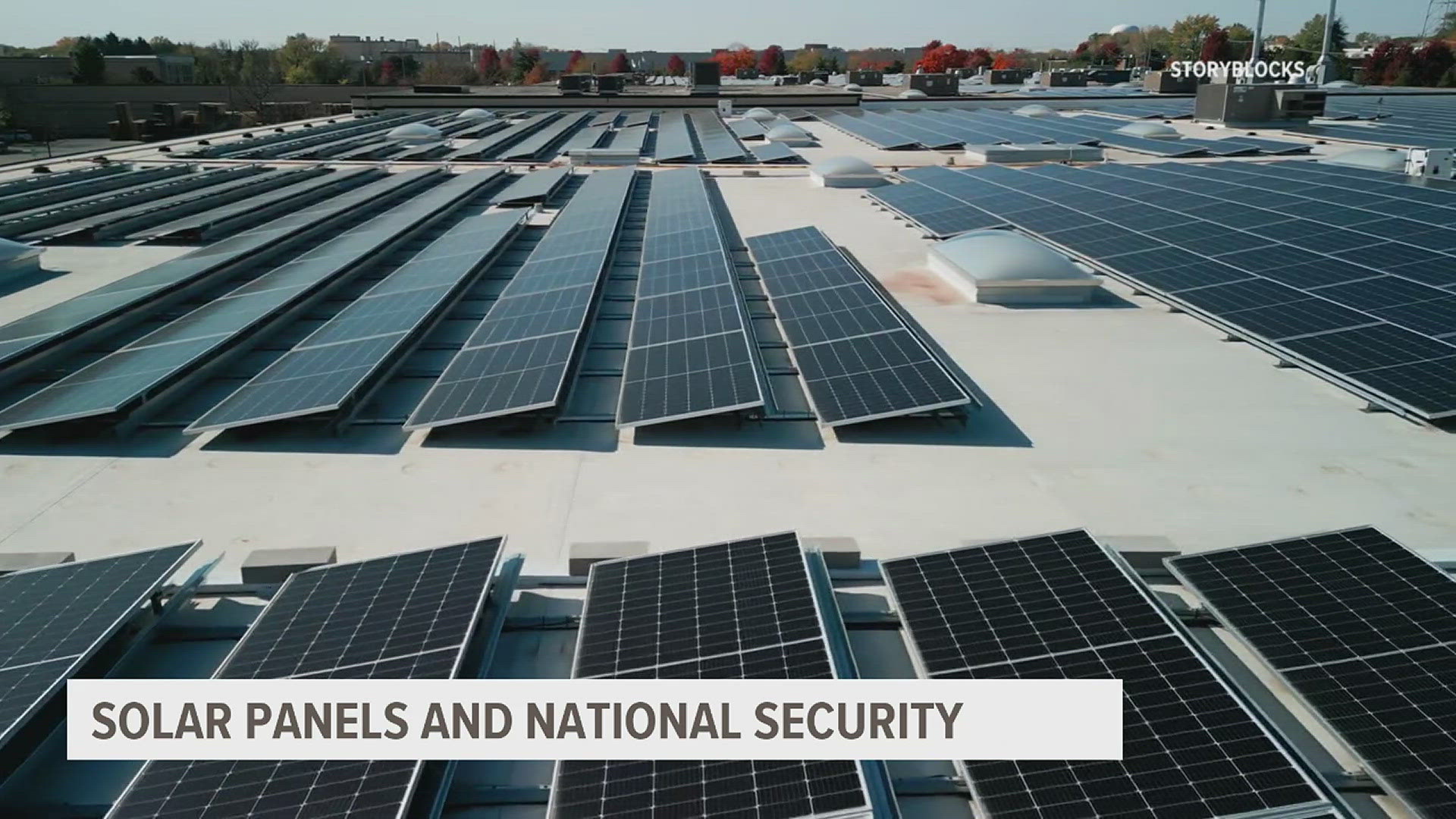YORK, Pa. — China installed more solar panels in 2023 than the United States has in its entire history.
Meanwhile, a 2022 FBI investigation found that equipment sold by Chinese-based companies can be used to disrupt U.S. military communications. And in 2019, a Chinese transformer was stopped at the Port of Houston and found to have potential spyware technology within it.
Facts like those, among others, lead many U.S. officials to worry that certain solar panels could pose a national security risk.
"When it comes to products like solar panels, communications equipment, transformers, all of that -- they're [China] always going to have an eye to 'how can we control it? How can we shut it off? How can we manipulate it in our favor, at the time of our choosing, to serve our purpose, our interests?'" U.S. Representative Scott Perry (R-Cumberland-Dauphin-York) said.
Congressman Perry is not alone.
According to an investigative report as far back as 2012, national security concerns have developed from China-based companies. But China has flooded the solar panel market in recent years, too -- controlling 80% of the solar panel supply chain and disrupting the market, causing prices to plummet.
"China and Southeast Asia has always been the hub of solar manufacturing," Larry Beiler, Vice President of Design and Procurement for Paradise Energy Solutions in Paradise Township, Lancaster County, said.
"That's where all the infrastructure is. That's where the product is," Beiler said.
The security threat for a solar panel comes from the inverter, rather than the panel itself, according to Beiler. It converts the solar panel power into energy we can use. It also connects to the internet and power grid, controlling data transfer and if the panel is on or not -- all remotely.
Rep. Perry sees this as an adversarial relationship in his view.
"Every single thing they do is to advance China at our peril," Rep. Perry said.
Meanwhile, those in the solar panel industry say that while the United States is behind the times, the tide may be turning.
"If someone wants a U.S. made product, five years ago I would have said that's almost impossible," Beiler said. "Today it's a little bit different and starting to shift."
According to Beiler, that shift is occurring as a byproduct of the Inflation Reduction Act of 2022 along with recent tariffs placed on imports from Southeast Asia. While the cheapest and most efficient panels still come from that region, subsidies for U.S. based manufacturers and consumer tax credits have weakened the market strength from China. Albeit, many consider only temporarily.
"It's a short-term acknowledgment," Rep. Perry said. "We need to incentivize our businesses to compete. The answer to that question on the other side is to incentivize through tax policy and regulatory policy."
Until then, some government officials simply encourage those interested in solar panels to consider their economic resources if they can, when purchasing solar panels.
"I would like our consumers to think about where they're sourcing if they're buying solar panels," Rep. Perry said. We have to say to ourselves, this is not in our interest long term. Even if it's not cheap, affordable to me, can I do it? Am I willing to support my nation and the businesses in my nation?"

